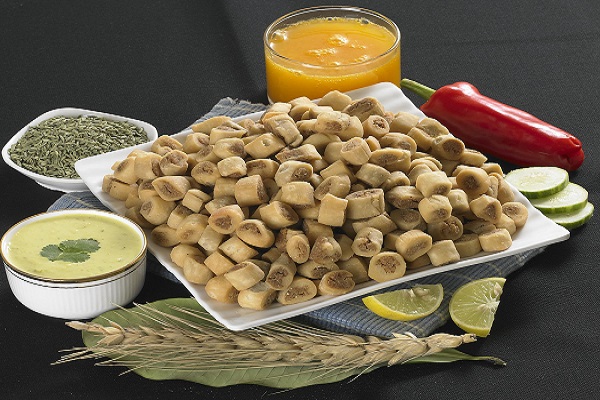Rajkot’s Gopal Snacks makes ready-to-eat packaged snacks across seven plants in Gujarat, Maharashtra, and Rajasthan, and is the second biggest player in the segment in Gujarat after Balaji Rajkot, Gujarat, 1994. “Zyada paisa kamana hai to daam nahin business badao [ if you want to earn more, then expand your business, don’t hike prices].” This priceless lesson from his father started haunting Bipin Hadvani. It was 1994. The second-generation entrepreneur, who migrated from Bhadra village to Rajkot city after completing his schooling in 1990, had co-founded a snacks business. “Jo khate ho wahi khilana [whatever you eat is what you must sell]” was another golden nugget from his father, which had been ingrained in Hadvani’s psyche. Four years later, he was itching to free himself from the joint venture and go solo.

Hadvani, a young boy, was given the freedom to pursue higher studies after finishing school. His father unconsciously groomed him for an entrepreneurial life, focusing on the namkeen business his father ran from a small shop in his village. The traditional Gujarati snacks were made at home, and Hadvani helped him with retailing. He wanted to start his own business, but his father’s business was the last thing on his mind. His father’s entrepreneurial spirit shaped his life and shaped his career.
In 1990, Hadvani moved to Rajkot to explore bigger business opportunities. His father initially thought he was joking but he stayed and joined hands with a relative to start a small namkeen venture. The local brand made significant progress over four years. However, a chasm between the partners grew, with Hadvani being aggressive, believing in scale, and opposed to raising prices. After four years, the partners decided to part ways. Hadvani’s share was around ₹2.5 lakh, and he bought a house and started Gopal Snacks in 1994. His wife, Daxa, became his business partner, and they began manufacturing from their house. Hadvani now starts from scratch again, and Daxaben was among the top 100 wealthy women on the Kotak Wealth Hurun list of 2020, India.
Hadvani, a Gujarati namkeen entrepreneur, faced challenges in his second venture, Gopal, due to brand loyalty and the preference for traditional Gujarati snacks. Despite focusing on quality, sales were not increasing. To address this, Hadvani went back to his roots, visiting Rajkot, interacting with shopkeepers, retailers, and dealers, and maintaining a strict production routine. Daxa managed the production from home, and for four years (1994-1998), the duo maintained the ritual. Sales increased, and Hadvani bought land outside the city and set up a manufacturing plant, despite the challenges. The success of Gopal was attributed to the strong brand loyalty and the dedication of the entrepreneurs.
The founder of Gopal Snacks faced a setback when the company’s remote location led to delayed product delivery. In 2008, the plant was shut down, and the company took additional loans to open a small unit in the city. The company changed its name to Gopal Snacks and reached a revenue of ₹100 crore in FY12. Over the next five years, revenue increased six times to ₹620.81 crore in FY17. The success of Gopal was also attributed to a combination of factors, including the closure of unbranded cottage shops selling traditional namkeen, increased ingredient costs, and reduced quality standards by smaller players, resulting in a significant drop in sales and market share.
Gopal, a Gujarati snack company, has experienced significant growth since 2017, with revenue doubling in five years and reaching ₹1,306 crore in FY22. The company has seven plants across Gujarat, Maharashtra, and Rajasthan, with over 60 products and 250 SKUs. It has a network reach of 750 dealers and 7 lakh retailers and exports to over 70 countries. Gopal added chips to its arsenal two years ago, and the brand now produces 1 crore packs a day. The company’s success can be attributed to its regional understanding of different tastes within the state or region, which has allowed it to cater to the growing demand for packaged snacks. The company’s success is attributed to its ability to understand the nuances of different tastes within a state or region.
The unassuming entrepreneur from the village dishes out a candid reply. “Sabne bola chips main paisa nahin banega. To maine nahin banaya [everyone said there was no money in chips, so I didn’t make them],” he says.
But then why did he start? “Because when I started making, I saw there was money,” he laughs.
Gopal Snacks, a Gujarati snack company, has diversified its product range over the past few years due to competition from big chips players in the region. The company has now diversified into various categories such as Cristos, chips, corn snacks, pellets, spices, flour, and washing bars. Around seven percent of Gopal’s sales now come from chips, and 80% of its overall sales are from Gujarat. However, marketing experts suggest that too much diversification could pose challenges for Gopal.
They argue that the company has done well by rolling out value-for-money offerings, increasing its dealership network, and geographical expansion in Maharashtra, Madhya Pradesh, and Rajasthan. However, Hadvani must maintain that its core product is traditional Gujarati namkeens, and diversifying into unrelated categories could lead to a loss of focus.
Hadvani, for his part, prefers the wisdom of his father. “zyada paisa kamana hai toh daam nahin business badao”.


